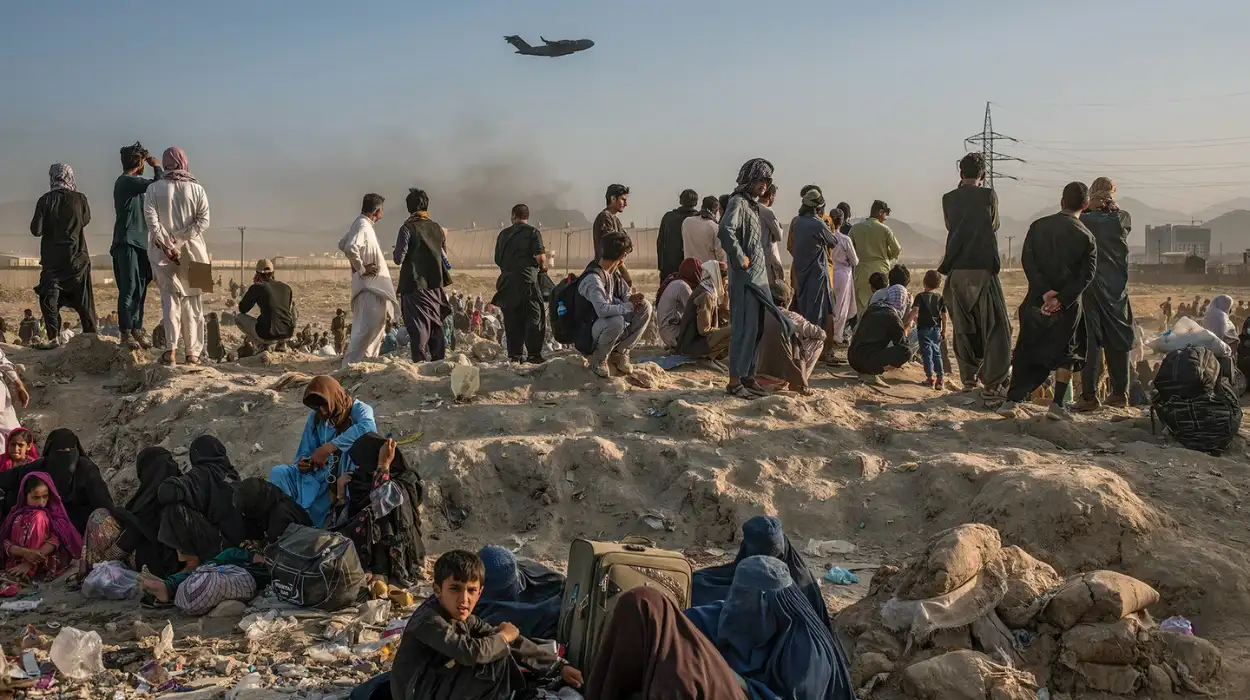In 2025, Afghan nationals that supported the U.S. forces in Afghanistan during the two-decades long conflict in Afghanistan find themselves in an undetermined future as they struggle to get a place under the new immigration policies that are being promoted by the Trump administration. Lots of them (and it may be interpreters, cultural liaison personals, and logistics coordinators) landed in the United States either on humanitarian parole or Temporary Protected Status (TPS) when the Taliban regained power in August 2021. However, they stopped receiving Special Immigrant Visas (SIVs), which offer a safer route to a permanent residency.
On April 11, 2025, the department of homeland security (DHS) issued an order that would end (terminate) the TPS program of more than 9,000 Afghan nations with effect on July 12. It is a ruling that has been reinforced by a federal appeal court in July that will lead to thousands leaving voluntarily or being deported. The administration tokenizes that security in Afghanistan is better and thus repatriation is justified which is mostly rebuked by human rights monitors and world watchers.
Trump Administration’s Policy Shift And Rationale
Executive Orders Reshaping Immigration
President Donald Trump took bold executive moves suspending refugee entry programs and scaling down humanitarian functions on returning to office in January 2025. The Afghan TPS termination is included in the nationwide national security strategy which focuses more on immigration restriction and risk reduction. DHS Secretary Kristi Noem explained the decision as a “return to TPS’s original scope,” arguing that Afghanistan no longer meets criteria for protection.
This has been justified by the anxieties about evacuation procedures in the past. In 2022, an inspector general report of DHS reported failures in vetting 79,000+ Afghan evacuees with the implications of risks to national security. Such concerns were reinvigorated later in early 2025 when National Security Advisor Michael Waltz connected the issue with domestic safety, asking authorities to start deporting those they can find. The kind of rhetoric here suggests Afghan deportations as an early line of defense of threats irrespective of the past service to the U.S missions.
The Ethical And Security Dilemma
Retribution And Risk Upon Return
Moving back to Afghanistan, which fell into control of the Taliban, poses immense dangers on the U.S affiliated Afghans. Although enforcement varies, the Taliban is reputed to attack former government employees, military affiliates, and also similar people related to the western actions. UN Special Rapporteur Richard Bennett has highlighted the fact that Afghanistan is not a safe country and that the returnees continue facing high degrees of risk in the country in terms of persecution and violent retaliations.
Most susceptible are the women and girls as they are faced with a systemic denial of educational, locational and labor options. Humanitarian and ethical questions are significant in regard to repatriation of such environment families. The deportation of those people who have unconditionally helped the United States efforts predestines them to receive the threat and eats into the moral fabric of the United States foreign policy affiliations.
Undermining Strategic Trust
It had the possible outcome of deporting allies who put their lives in danger to favour the U.S. military thus causing a significant implication in future international collaboration. Local forces in the conflict or in intelligence works in future may be reluctant to assist American missions in case they get dumped after the conflict, still. This form of distrust also undermines the capability of the U.S. forces to work well in turbulent territories.
In addition, U.S. promises to human rights and leadership in the world are threatened. The U.S. is contradicting itself in terms of the worth of its alliances or its humanitarian belief by stripping people of it who had been assured of protection.
Impact On U.S. Credibility And Foreign Relations
Diplomatic Consequences Of Deportation
The international community of allied nations and international human rights groups has raised concern of the implications on the deportation policy. Deportation of individuals who served the U.S. mission would be a serious impediment to international relations and strengthen the argument that the U.S. is not faithful to its international obligation.
The European partners concerned experience fear especially after resettling Afghan refugees. The cooperation of regional stability that largely depends on the cooperation of allies needs mutual trust. The treatment of Afghan evacuees by the U.S. might complicate the work of multinational efforts in which the cooperation with civilians is crucial.
Future Policy Repercussions
The decisions made in the year 2025 might define the pattern of the U.S. to treat allies out of the conflict in the future. Examples set by the current government can be used in implementing the immigration and refugee policies to come, particularly to people who aid American activities overseas.
Such a sense of betrayal would create a less effective civilian intelligence collection, decrease military coordination with locals, and deteriorate the role and influence of the U.S. in the strategic areas.
Conflicting Signals And Political Dynamics
A Mixed Message From The White House
An opposing story can be spotted in the domestic policy; hence, President Trump promising to help Afghans imprisoned in the UAE in May 2025. On the one hand, the administration is on the way to deporting the Afghans residing on the U.S. soil, and on the other, it also shows some concern about those who are not in the country. Such contradiction begs the question of what the administration is aiming at broadly, this may be part of diplomatic bargaining or even political games of optics and not policy consistency.
This is made complicated by the ambiguity. Although it can be an indication of selective humanitarianism, it does not help thousands of Afghans already at the risk of being removed in the U.S.
Legal Battles And Grassroots Resistance
Multiple humanitarian organizations, among which is CWS, are still challenging the refugee ban and funding cuts established by the administration by bringing the cases to federal courts. In the Congress, bipartisan bills have been brought to grant lawful permanent residency to the Afghan evacuees, although none of them have yet become law. These disparities in the safeguards create numerous dependencies of lapsing interim positions.
State-level responses vary. In California, where large Afghan communities reside, the government has allocated $10 million in legal aid to help affected individuals navigate the asylum and appeals process. These initiatives reflect localized efforts to counter federal policy impacts.
Global Context Of Refugee Policies
Similar Patterns In Neighboring Countries
The U.S. is not alone in shifting its stance on Afghan refugees. Since late 2023, Pakistan has deported over 900,000 undocumented Afghans, citing national security threats. While the Taliban criticized the pace of deportations, they did not object to the principle, revealing limited concern for returnees’ safety.
These trends illustrate the tightening refugee policies worldwide. Many host countries now emphasize security over humanitarian concerns, leaving displaced populations with dwindling options. The U.S.’s deportation of Afghan allies, however, is especially controversial due to its direct involvement in creating the conditions that prompted their flight.
A Legacy Of Intervention And Obligation
Given the U.S.’s two-decade presence in Afghanistan, its decisions carry more than procedural weight. The treatment of Afghan allies is seen by many as a litmus test for America’s willingness to honor its moral and strategic responsibilities. Deporting individuals who stood beside U.S. forces would symbolize a rupture between rhetoric and action.
This person has spoken on the topic in an interview with a media outlet: Eric Daugh, a former U.S. military interpreter in Afghanistan, recently emphasized that
“the deportation of Afghans who stood with us is not just a policy decision; it’s a moral failing that will haunt our nation’s conscience and undermine our ability to forge future alliances.”
BREAKING: President Trump announces "starting right now," he will try to save the Afghans who aided the US military now hiding in the UAE, and face being handed over to the Taliban.
— Eric Daugherty (@EricLDaugh) July 20, 2025
They were stranded after BIDEN's withdrawal. pic.twitter.com/HLggMkLN72
Reckoning With Moral Responsibility In A Shifting Landscape
The destinies of Afghanistan allies in 2025 will provide an indelible memory to the U.S policy and perception. The case of national security is justified but it should be balanced out against a duty of ethical adequacy and the repercussion of unkept promises. The way it copes with the legs of its longest war says lots about its soul as an international player.
The changing circumstance points towards the conflict between the imposition of sovereign control on the border and the international obligation of morality. With this challenge facing the immigration courts, policymakers, and civil society it is a career that will give a pulse to our future amalgamations, refugee resolutions as well the self-perception of America.





